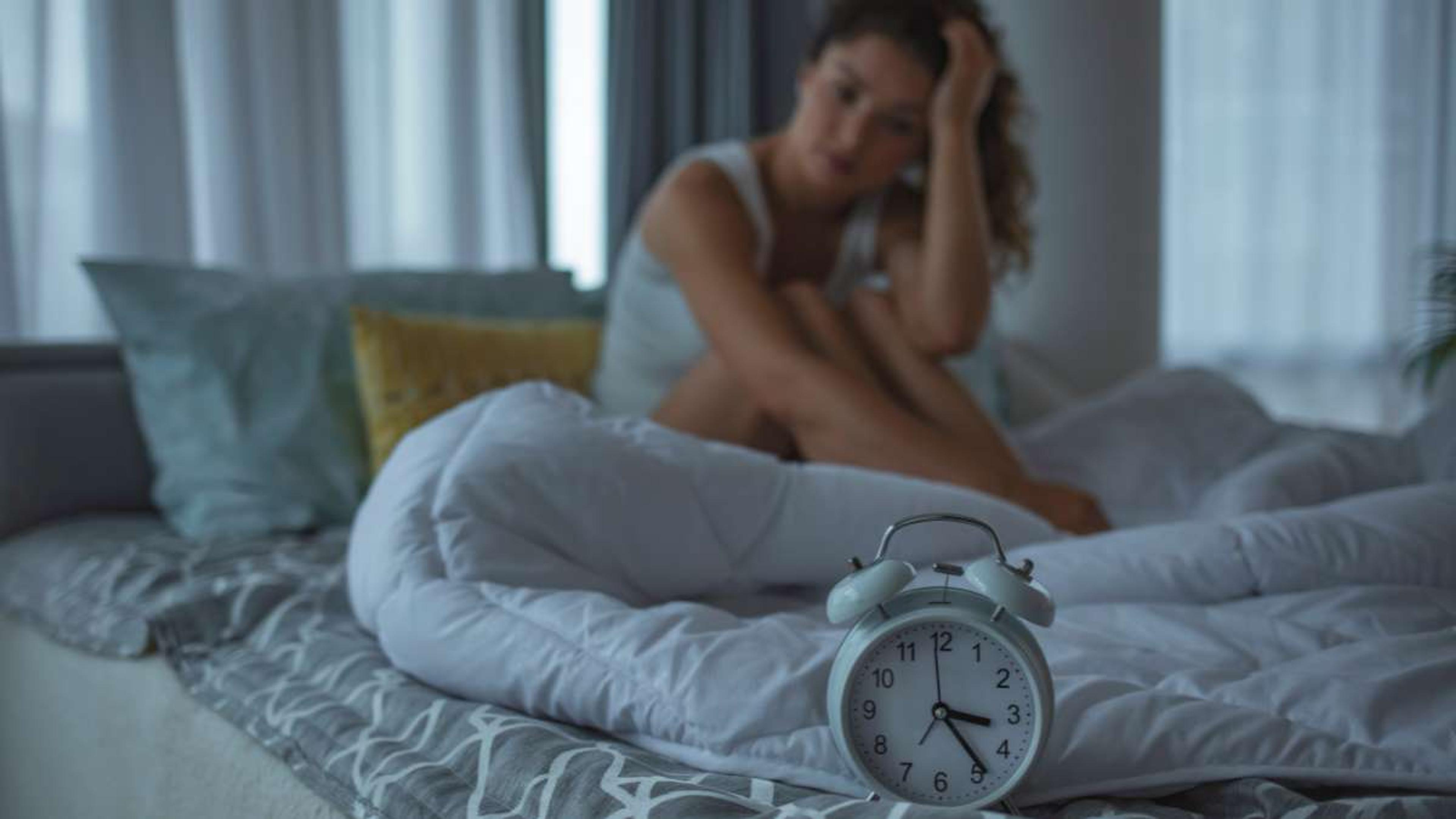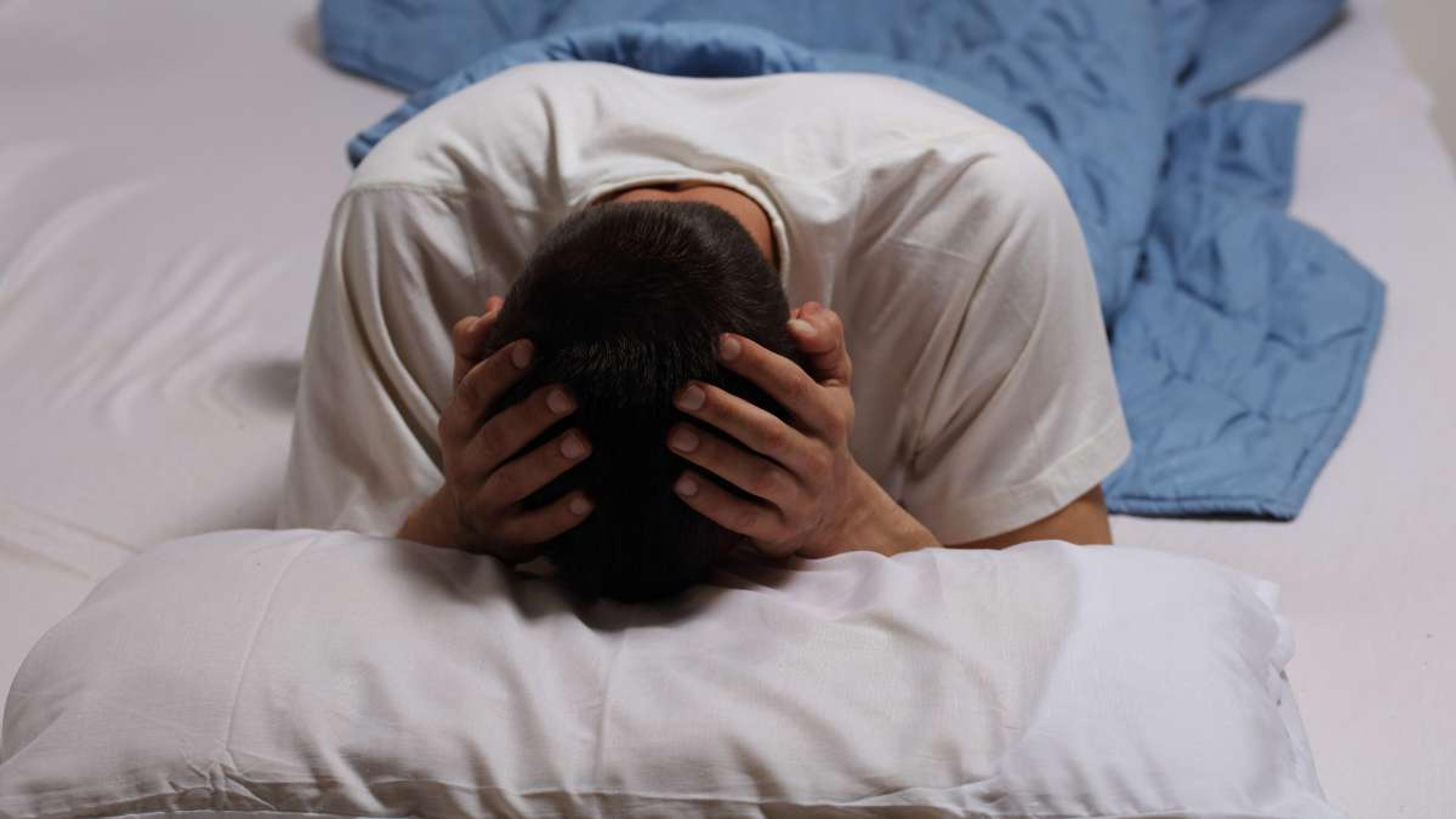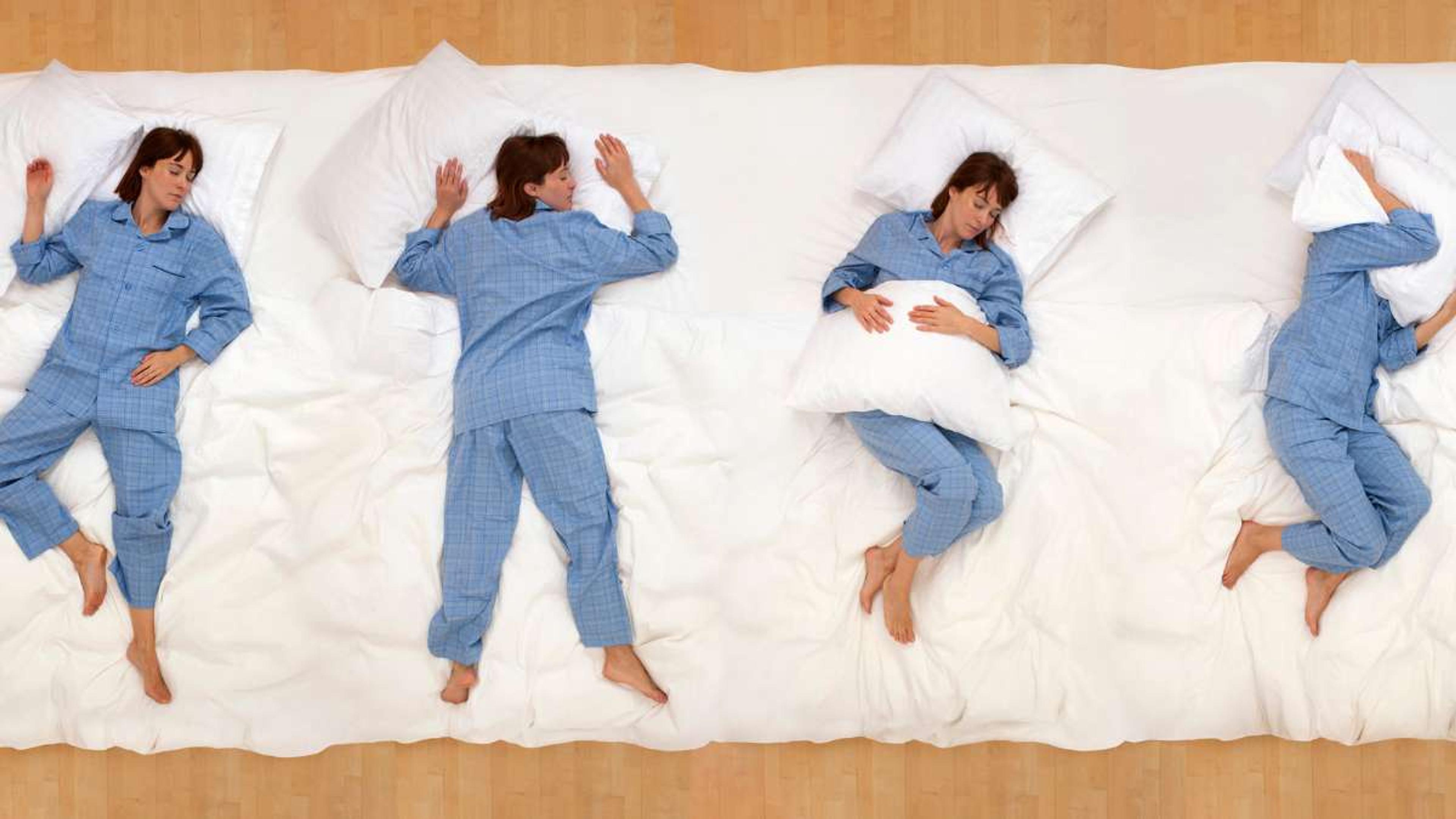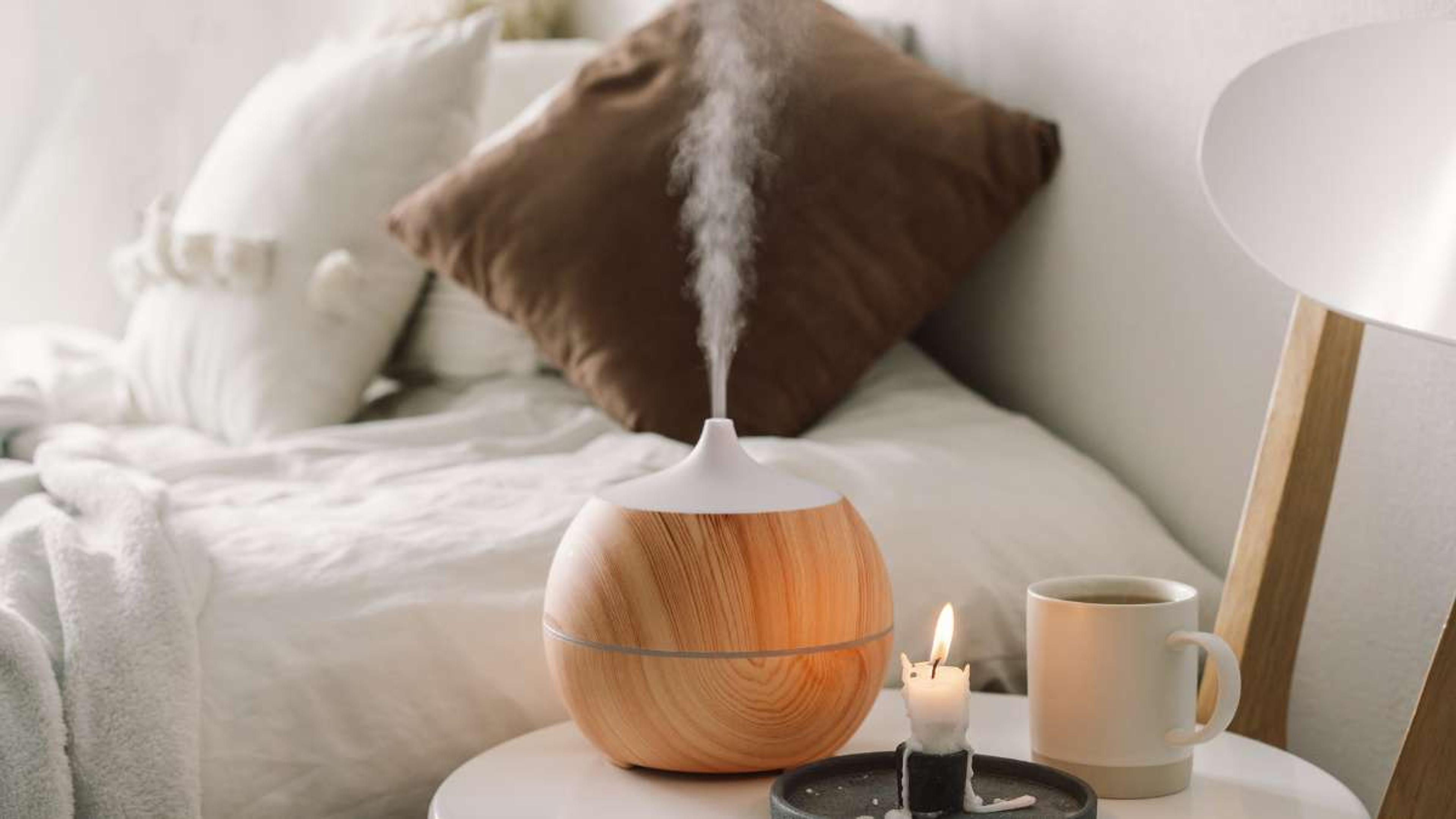Vegan Insomnia: Causes, Symptoms, and Solutions

- Key Takeaways
- Understanding Vegan Insomnia
- 5 Causes of Vegan Insomnia
- 4 Steps to Managing Vegan Insomnia
- 4 Lifestyle Factors to Improve Sleep Quality for Vegans
- Seeking Professional Help for Vegan Insomnia
- Conclusion
- FAQs
Are you a vegan struggling with sleepless nights? Recent studies suggest that you're not alone as many vegans experience insomnia, often related to nutritional deficiencies. This article is designed to enlighten you on the causes of Vegan Insomnia and provide effective steps for managing it.
Ready for a good night's sleep? Let’s dive in!
Key Takeaways
- Vegan insomnia is a sleep disorder that affects individuals following a vegan diet.
- Nutritional deficiencies, imbalances in macronutrients, disrupted sleep patterns, lack of certain amino acids, and meat and dairy withdrawal are common causes of vegan insomnia.
- To manage vegan insomnia, it is important to supplement B12, iron, and zinc properly; balance macronutrient intake; incorporate sleep-promoting foods like fruits, nuts, oats, seeds, edamame; establish a consistent sleep schedule.
- Regular exercise, creating a sleep-friendly environment, limiting caffeine and alcohol intake, managing stress levels can greatly improve sleep quality for vegans.
Understanding Vegan Insomnia
Vegan insomnia is a sleep disorder that affects individuals following a vegan diet, and it can be caused by various factors such as nutritional deficiencies and disrupted sleep patterns.
Causes of insomnia in vegans
Insomnia can hit vegans for many reasons.
- A big cause is the lack of nutrients in their food. B12, iron, and zinc are very important. But new vegans may not get enough from their meals.
- Another cause is an imbalance in what vegans eat. They may not get enough of all the types of food needed for good health.
- Feeling anxious or upset can also disrupt sleep. This is linked to changes in diet.
- A lack of some building blocks for our bodies, called amino acids, may affect sleep too.
- Finally, giving up meat and dairy can also make sleep harder at first.
Role of veganism, stress, and sleep troubles
Veganism can impact sleep in many ways.
Eating only plant-based foods means no animal products are part of the diet. This change can cause some vegans to have trouble sleeping well at first. Meat and dairy contain certain nutrients that are essential for optimal sleep, such as tryptophan, which helps in the production of sleep-promoting hormones like serotonin and melatonin. When transitioning to a vegan diet, particularly when it is an immediate transition, individuals may experience withdrawal symptoms from these animal products, leading to disrupted sleep patterns.
In addition, the nutritional changes that come with veganism can also play a role in sleep troubles. Vegan diets require careful attention to ensure proper intake of key nutrients like B12, iron, and zinc, which are important for overall health and sleep quality. Insufficient levels of these nutrients can lead to insomnia.
Stress also plays a big role in how well we sleep. High stress levels can keep you awake late into the night or wake you up too early in the morning. Lack of good sleep, or insomnia, and high stress go hand-in-hand often times.
So it's key to manage stress for better sleep quality especially if following a vegan diet.
5 Causes of Vegan Insomnia

1. Nutritional deficiencies (B12, iron, zinc)
Vegans sometimes lack B12, iron, and zinc. These are very important for our body. Vegan food does not have as much of these nutrients as animal foods do. That's why vegans need to take extra care in making sure they get enough.
The lack of B12 is a common issue in the vegan diet. If you don't have enough, it can make you feel weak and tired all the time. Iron helps make red blood cells that carry oxygen all over your body.
Without iron, we might feel drained or dizzy often. Zinc keeps our immune system strong so we don't fall sick easily. Vegans need good sources of zinc such as soy products, lentils and seeds to stay healthy.
2. Imbalance in macronutrients
Imbalances in macronutrients can contribute to vegan insomnia. Macronutrients, which include carbohydrates, proteins, and fats, are essential for our body's functioning. When there is an imbalance in the intake of these nutrients, it can affect our sleep quality.
For example, consuming too many high-sugar or high-fat foods, including starchy foods, close to bedtime can disrupt our sleep-wake cycles and lead to difficulty falling asleep or staying asleep throughout the night.
On the other hand, not getting enough complex carbohydrates or protein from plant-based sources can result in low blood sugar levels during sleep and cause wakefulness during the middle of the night. This can also affect the release of serotonin, which is important for regulating sleep and mood.
3. Disrupted sleep patterns
Many vegans experience disrupted sleep patterns, which can contribute to insomnia. This can be due to various factors, such as stress and anxiety related to veganism or changes in dietary habits.
Additionally, deficiencies in certain nutrients like vitamin B12, iron, and zinc can also affect sleep quality. These nutrient deficiencies are common among vegans who may not be properly supplementing their diet.
Disrupted sleep patterns, caused by a lack of sleep, can lead to difficulty falling asleep or staying asleep throughout the night. It's important for vegans experiencing these issues to address both their dietary needs and any underlying stress or anxiety that may be affecting their sleep.
4. Lack of certain amino acids
Lack of certain amino acids can contribute to vegan insomnia. Amino acids like DHA and B12 are important for the production of melatonin, a hormone that regulates sleep-wake cycles.
When vegans don't get enough of these amino acids, it can lead to melatonin deficiency and worsen their sleep problems. This is especially common in new vegans who may not be aware of the need for proper supplementation.
Ensuring an adequate intake of these essential amino acids through supplements or fortified foods can help improve sleep quality for vegans.
5. Meat and dairy withdrawal as a factor
One factor that may contribute to vegan insomnia is the withdrawal of meat and dairy from the diet. Meat and dairy products are rich sources of certain nutrients, such as tryptophan, which can help promote better sleep.
When these foods are eliminated from a vegan diet, there may be a decrease in the intake of these sleep-promoting nutrients. This reduction in nutrient intake could potentially disrupt sleep patterns and contribute to difficulties falling asleep or staying asleep throughout the night.
It is important for vegans to ensure they are getting adequate nutrition through other plant-based sources or supplementation to support healthy sleep.
4 Steps to Managing Vegan Insomnia
To manage vegan insomnia, it is important to take four key steps: proper supplementation of B12, iron, and zinc; balancing macronutrient intake; incorporating sleep-promoting foods like fruits, nuts, oats, seeds, edamame, and beans; and establishing a consistent sleep schedule.

1. Proper supplementation of B12, iron, and zinc
Vegans need to make sure they get enough vitamin B12, iron, and zinc in their diet. These nutrients are important for overall health and can help manage vegan insomnia. Vitamin B12 is especially crucial because many vegans may be deficient in it.
It can be found in fortified foods or taken as a supplement. Iron and zinc can also be obtained through plant-based sources like legumes, whole grains, nuts, and seeds. Ensuring proper supplementation of these nutrients can support better sleep and reduce the chances of experiencing insomnia.
2. Balancing macronutrient intake
Balancing the intake of macronutrients, which are carbohydrates, proteins, and fats, is crucial for managing energy levels in our bodies. A recent study found that there can be differences in how much of these nutrients vegans consume compared to people who eat both plant-based and animal products.
For example, the Atkins Diet focuses on high protein and fat intake while restricting carbohydrates. However, it's important for vegans to ensure they are getting enough complex carbohydrates from sources like whole grains, fruits, and vegetables, as well as plant-based proteins from soy products or legumes.
By carefully considering their macronutrient intake, vegans can support proper energy supply and utilization in their bodies.
3. Incorporating sleep-promoting foods (Fruits, nuts, oats, seeds, edamame, and beans)
Filling your plate with sleep-promoting foods can help manage vegan insomnia. Fruits, nuts, oats, seeds, edamame, and beans are excellent choices to include in your diet. These plant-based options contain essential nutrients like magnesium and tryptophan that promote relaxation and better sleep.
For example, walnuts have been shown to potentially alleviate insomnia and sleep apnea. Additionally, consuming healthy fats found in avocados and walnuts is associated with improved sleep quality.
Incorporating these nourishing foods into your meals can be an effective strategy for managing vegan insomnia and getting a good night's rest.
4. Establishing a consistent sleep schedule
Establishing a consistent sleep schedule is really important for managing vegan insomnia. By sticking to a regular bedtime routine, you can help regulate your body's internal clock and reduce the risk of sleep problems.
This means going to bed and waking up at the same time every day, even on weekends. It might take some time to adjust, but fixing your sleep schedule can actually happen pretty quickly, like within a day! So make it a priority to establish a consistent sleep schedule if you're struggling with vegan insomnia.
4 Lifestyle Factors to Improve Sleep Quality for Vegans

1. Regular exercise
Regular exercise is an important factor in improving sleep quality for vegans with insomnia. Engaging in physical activity has been shown to have positive effects on sleep patterns and overall well-being.
It can help reduce feelings of stress and anxiety, promote relaxation, and increase the release of chemicals in the brain that contribute to better sleep. Exercise also helps regulate circadian rhythm, which is important for maintaining a healthy sleep-wake cycle.
By incorporating regular exercise into their daily routine, vegans with insomnia may experience improved sleep quality and overall health benefits.
2. Creating a sleep-friendly environment
Creating a sleep-friendly environment is essential for improving the quality of your sleep. Make sure your bedroom is dark, quiet, cool, and comfortable. Use blackout curtains or eye masks to block out any light that may disturb your sleep.
Reduce noise by using earplugs or a white noise machine. Keep the temperature in your room cool and use breathable bedding materials to ensure comfort. By creating an environment that supports relaxation and tranquility, you can optimize your chances of getting a restful night's sleep.
3. Limiting caffeine and alcohol intake
Consuming too much caffeine and alcohol can negatively affect the quality of sleep, especially for vegans. Caffeine, found in coffee, tea, chocolate, and some sodas, can disrupt sleep by keeping you awake at night.
It can also lead to increased wakefulness during the night and cause difficulty falling asleep. Alcohol may initially make you feel sleepy but can disrupt your sleep patterns later in the night.
It reduces the amount of Rapid Eye Movement (REM) sleep which is essential for restorative sleep. To improve your sleep quality as a vegan, it's important to limit your intake of caffeine and alcohol throughout the day and especially before bedtime.
4. Managing stress levels and using relaxation techniques
Stress management is important for vegans experiencing insomnia. Stress can negatively affect sleep quality, so it's crucial to find ways to relax and reduce stress levels. One effective technique is relaxation breathing. This involves taking deep breaths and focusing on your breathing to calm the mind and body.
Another technique is guided imagery, where you visualize peaceful scenes or situations to help you unwind. You could combine guided imagery with relax music playing in the background which would help you to ease your mind off to relax & fall asleep.
Engaging in activities that you enjoy and promote relaxation, such as reading a book or listening to calming music, can also help manage stress levels and improve sleep quality. Remember, finding what works best for you may take some trial and error, but prioritizing stress management can greatly benefit your overall well-being.
Using easy words:
Seeking Professional Help for Vegan Insomnia
To address vegan insomnia, it is recommended to consult a registered dietitian or nutritionist for expert guidance on maintaining proper nutrient levels in a plant-based diet. Additionally, seeking advice from a sleep specialist can help identify underlying causes and develop an individualized treatment plan.

Consulting a registered dietitian or nutritionist
You can seek help from a registered dietitian or nutritionist to address your vegan insomnia. They are experts in the field of nutrition and can create a personalized plan that takes into account your specific dietary needs as a vegan.
Whether you need guidance on supplementation, balancing macronutrients, or incorporating sleep-promoting foods into your diet, these professionals can provide valuable advice. By consulting them, you can ensure that you are meeting all your nutritional requirements while also improving your sleep quality.
Seeking advice from a sleep specialist
If you're struggling with vegan insomnia, it can be helpful to seek advice from a sleep specialist. They are experts in understanding the causes and treatments of insomnia, including those specific to vegans.
A sleep specialist can provide valuable tips and strategies for improving your sleep quality and overall well-being. By consulting with a professional, you can gain personalized guidance on managing your sleep difficulties and find effective solutions tailored to your needs.
Remember that seeking help is an important step towards getting the restful sleep you need as a vegan.
Conclusion
In conclusion, vegan insomnia is a real concern for many individuals. The lack of certain nutrients in a vegan diet can disrupt sleep patterns and contribute to insomnia. However, by addressing these deficiencies through proper supplementation and making lifestyle adjustments, vegans can improve their sleep quality and get the rest they need.
Seeking guidance from professionals such as registered dietitians or sleep specialists can also be beneficial in managing vegan insomnia effectively.
FAQs
1. Can a vegan diet cause insomnia?
No, a vegan diet itself does not directly cause insomnia. However, nutrient deficiencies or poor sleep hygiene can affect sleep quality in vegans as well as non-vegans.
2. What are some common causes of insomnia for vegans?
Common causes of insomnia for vegans can include low intake of nutrients like iron and vitamin B12, caffeine consumption, high stress levels, irregular sleep schedules, and exposure to blue light from electronic devices before bedtime.
3. How can I improve my sleep while following a vegan lifestyle?
You can improve your sleep by ensuring you consume enough nutrients through a balanced plant-based diet, practicing good sleep hygiene habits like maintaining a consistent sleep schedule and creating a relaxing bedtime routine.
4. Are there any specific foods that can help with vegan insomnia?
Foods rich in magnesium (such as nuts and seeds), tryptophan (found in bananas and oats), and melatonin (like tart cherries) may have potential benefits for promoting better sleep among vegans. However, individual responses vary so it's important to find what works best for you.

